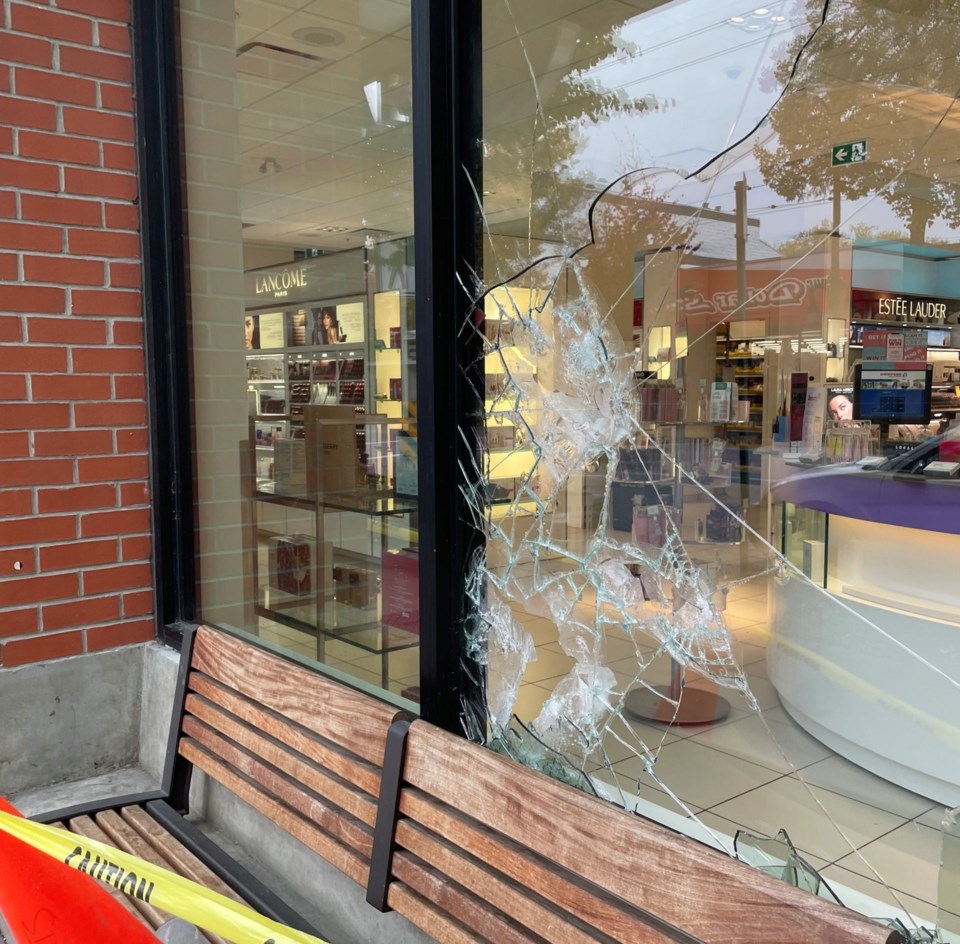There was a time when we didn’t lock our front doors anywhere in Metro Vancouver. It wasn’t so long ago.
More recently, my purse was stolen out of my house while I was standing just a few meters away from the front door.
It was pre-COVID, summer 2019. A group of friends were on our postage stamp patio on a warm summer night when this crime of opportunity was committed. Someone saw our distraction as their opportunity to walk right in and help themselves to whatever they might grab.
Standing stunned in my dining room, my first thought was this an unexpected friend arriving? Instead, a blurred figure reached in and grabbed whatever was in arms’ reach.
It happened so fast I didn’t even trust my eyes.
“Hello? Is someone there?” My naive call to the door as it swung on its hinges in eerie fashion. I walked into the door frame, peering out the open space, calling again “Hello? Is anyone there?”
What a newb. I had been robbed.
After I came to my senses and recognized what had just happened, that a crime had been committed. Oddly, the idea of calling police came and went in almost the same second; I asked myself what could be done? Probably nothing. A waste of time of law enforcement. What proof could I offer?
Criminals count on this, are emboldened by it.
Shortly after this incident, I installed a motion sensor doorbell.
I have lots of company as our society pivots to protections: bars on windows, roll down gates, walled communities, dead locks, security cameras, code or fob doors, the list goes on. In 2021, doors are more than locked.
Have you heard how the demand for private security guards has never been higher in Metro Vancouver?
This Middle asks: is it time for cameras?
Big Brother style policing is not a first choice for me, but man that ring camera is helpful.
I wrote recently about the sexual assault of a minor at Granville Island that was connected to a slew of assaults in the area. The perpetrator was quickly identified with the use of security camera footage. That changed my mind about cameras in a broader sense.
I will ask you the questions I’ve been asking myself: if you knew it would significantly cut crime, would it be so bad to have security cameras on city streets? Would there not be great value in deterrence, evidence gathered, and better ability for law enforcement to catch criminals?
It’s no secret that current law enforcement simply does not have the capacity to keep up with the rise in the instances of crime. Here in Vancouver, the Deputy Chief tweets out switchboard numbers regularly. It’s a landslide.
From dangerous gang activity down to mom and pop shop having their doors smashed weekly, this is a slippery slope that needs all hands on deck, including citizens prepared to tolerate a little more oversight – literally – in the name of safety.
The small-town dreamworld of unlocked doors is gone.
Meaningful action and consequences seem to be MIA in the struggle for neighbourhood safety. You’ve seen the stories, I’m sure. Thieves walking into stores and brazenly grabbing what they want, with shopkeepers left to just watch.
It’s truly concerning how this cycle is establishing itself as some sort of normal.
These things cannot become normal. It should not become “part of living in a city.”
With modern technology, could we not find a way to film high risk places? What would innocent citizens be giving up by having that security camera there when they need it? It’s not like our phones don’t already track our every move.
With increased acceptance of data tracking, selfies and check-ins on smartphones and social media, it seems like a no-brainer to catch criminals on camera.
Jody Vance is a born and raised Vancouverite who’s spent 30 years in both local and national media. The first woman in the history of Canadian TV to host her own sports show in primetime, since 2011 she’s been working in both TV and radio covering news and current affairs.
SWIM ON:
- Jody Vance last checked in with a calendar update: if you're not vaccinated, and have holiday travel plans...you still have time. But not much.
- Jody mentions above a very brave young woman who stood up and helped police identify a sexual assailant.
- Jody spent many a starry-eyed summer day the Cloverdale Rodeo, and was heartbroken to learn many others had a very different experience.



